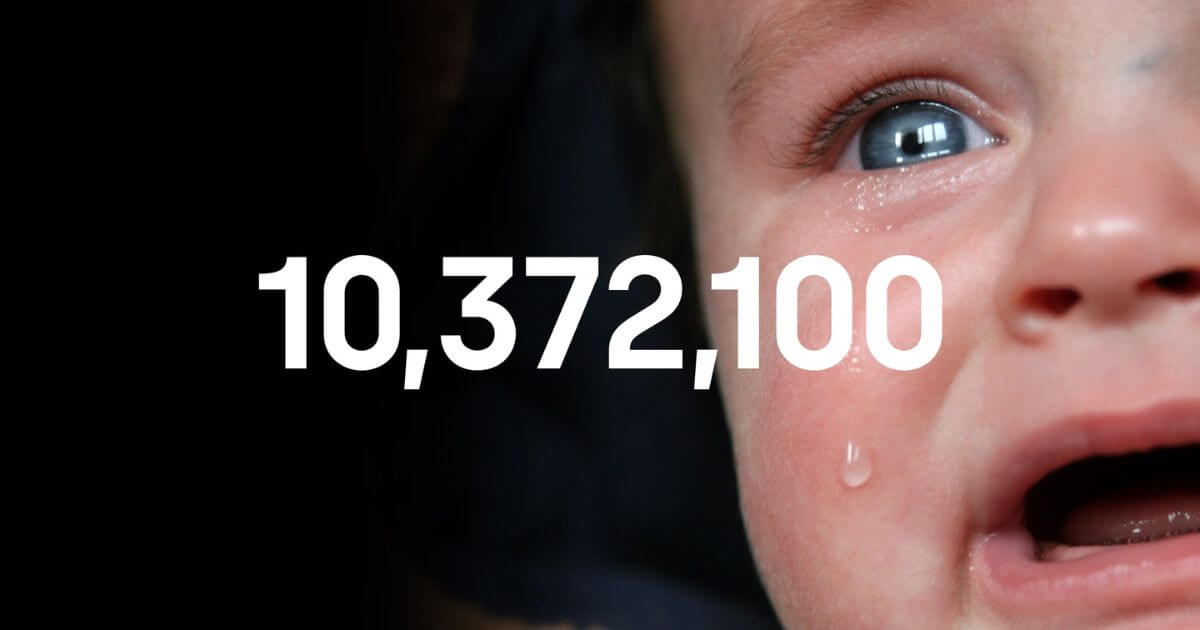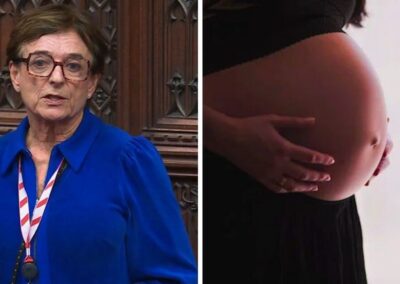10,372,100* unborn babies have lost their lives to abortion in England, Wales and Scotland since 1968 when the Abortion Act 1967 came into effect.
Last Saturday, 27 April, marked 56 years since the abortion law came into force.
In 2021, (the last full year for which abortion statistics are available) more than one baby was lost to abortion every two and a half minutes; 26 lives were ended every hour.
The number of abortions in England and Wales has reached a record high with 214,869 taking place in 2021, while in Scotland in 2022, there were a record 16,596 abortions, 2,659 more than in 2021 or a 19.08% increase from 13,937 in the previous year.
This significant rise in abortions in England and Wales has accompanied the introduction of ‘DIY’ home abortion services that have been operating in England and Wales since March 2020. Since ‘DIY’ home abortions were introduced, a number of significant problems have arisen.
Abortion statistics released by the Department of Health and Social Care show that in England and Wales, there was a total of 214,869 abortions in 2021, an increase of 4,009 abortions from 2020 when there were 210,860 abortions. This is the highest ever number on record.
Opinion polls repeatedly show that the public wants increased protections for unborn babies and more support for mothers facing unplanned pregnancies – rather than the wholesale removal of legal safeguards around abortion.
Only 1% of the population want abortion to be available up to birth and 70% of women want the abortion limit to be reduced to 20 weeks or lower.
Spokesperson for Right To Life UK, Catherine Robinson, said “The UK’s abortion law is failing both women and unborn babies. It is a national tragedy that 10,372,100 lives have been lost since the Abortion Act 1967 came into effect, each one a unique and valuable human being who was denied the right to life”.
“Every one of these abortions represents a collective failure of our society to protect the lives of babies in the womb and a failure to offer full support to women with unplanned pregnancies”.
“While we may pause to commemorate this tragedy, this day also serves as a call to action for people around the country to renew their efforts to do everything they can to help ensure more lives are saved from abortion in the future”.
“This includes contacting MPs and asking them to ensure that protections for unborn babies are introduced and safeguards are strengthened to protect both mothers and babies – along with volunteering with pregnancy support centres and undertaking other pro-life activities that support mothers and their children in pregnancy and beyond”.
“By being proactive and taking action, every single one of us can be part of building a pro-life nation where we protect and defend the right to life of every human being from conception to natural death”.
*This figure is a projection for England, Wales and Scotland through to midnight on 27/4/2024 and has been calculated based on the following assumptions:
- This figure is a projection for England, Wales and Scotland through to midnight on 27/04/24
- The number of abortions per day in England & Wales will remain the same in 2024, 2023 and 2022 as in 2021.
- The number of abortions per day in Scotland will remain the same in 2024 and 2023 as in 2022.
- The rate of abortions throughout the year is evenly distributed.
Please note, we have not included data for abortions that have occurred in Northern Ireland since 2020 because it has not been made clear on which day abortions began being performed in Northern Ireland and it is therefore unreliable to model a projection for the remainder of the year using this.












